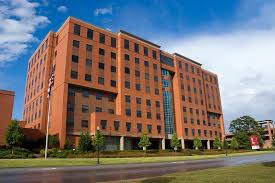Special to the
Opelika Observer
East Alabama Medical Center (EAMC) is an invaluable source of health care for some of the neediest members of our community. We are a Disproportionate Share Hospital (DSH) – a federal designation reflecting EAMC’s treatment of a large percentage of indigent patients, many of whom are uninsured or underinsured. In fact, more than 60 percent of the patients we see each day either are dependent on public health assistance or have no health insurance at all. When these patients come to the hospital, EAMC treats them regardless of whether they can pay. So, how can we do this? A very important federal law called the 340B drug pricing program helps EAMC provide for the neediest residents of East Central Alabama.
The 340B drug pricing program was signed into law by President George H.W. Bush in 1992. In exchange for being allowed to participate in government health programs, pharmaceutical companies agree to sell their drugs to certain qualified entities, like DSH hospitals, at discounted rates for outpatient use. Hospitals and other qualified health care providers use these discounts to offer free or discounted medications to people who can’t otherwise afford them, and they pay for services hospitals otherwise could not provide to the communities they serve. These include many expensive services, such as specialized care for patients living with cancer, HIV and hepatitis C.
At EAMC, we also have used these discounts to fund clinical pharmacy programs for patients in the emergency room and in the inpatient setting. Clinical pharmacists work directly at the bedside with physicians, nurses and social workers to provide vital drug information during ER visits. They also work in the inpatient setting with counseling discharging patients.
This counseling better ensures that patients take their medications correctly, reducing the chances that those patients will need to come back to the hospital. ER visits and hospital readmissions often are related to drug therapy problems, and facilities are penalized if patients need to return to the hospital for the same condition within 30 days. So these vital, outcomes- focused clinical pharmacy programs not only keep patients healthier but also save money for the entire health care system.
The discounts from the 340B drug pricing program also allow EAMC and others to offset significant losses stemming from uncompensated care – that is, services provided to people who are uninsured or whose health coverage pays less than what it costs to treat them.
Because EAMC treats all patients the same and does not turn people away if they lack insurance or the ability to pay, we provided nearly $50 million in uncompensated care last year related to treating the indigent, uninsured and underinsured population. Without 340B, this would not be possible. EAMC is not unique in this regard; 340B DSH hospitals provide 60 percent of all uncompensated and unreimbursed care despite making up less than 40 percent of all acute care hospitals in the country.
It is important to note that this program is able to do so much good while not receiving any funding from the government or your tax dollars.
The discounts are provided by the very profitable pharmaceutical industry. U.S. drug makers made a whopping $456 billion in sales last year, but the 340B program discounts totaled only about $6 billion – that’s only 1.3 percent of total sales. For companies that are routinely reporting profit margins in the 15-20 percent range, that is hardly a burden that they cannot afford for the good of vulnerable patients.
Still, the drug manufacturers are spending millions of dollars lobbying Congress to severely limit the 340B drug discount program. They claim that the program has run amok and that hospitals are using the funds in inappropriate ways. The situation here on the ground clearly shows that is just not true. Here at EAMC and at hospitals like ours, this program is the difference between life and death for the most vulnerable patients in the community. The vast majority of Alabamians receive their health care from a hospital that participates in the 340B program. Most, if not all, of these hospitals would be forced to make major cuts in services if this program is drastically changed just to pad drug company profits. Some hospitals might even be forced to close their doors.
We know that cutting back on vital care is not an option for the people of the Auburn/Opelika area or the people of the state of Alabama at large. I encourage you to call your congressional representative today and ask them to oppose legislation that would weaken the 340B program and, instead, cosponsor a bipartisan bill, H.R. 4392, that would roll back damaging federal payment cuts to safety-net hospitals that went into effect January 1. Please remind them that we sent them to Washington to help people in need, just as we at EAMC do every day right here in Lee County.
Chuck Beams, RPh, is the director of pharmacy services at East Alabama Medical Center. He oversees inpatient and outpatient pharmacy services for the center, a safety-net health care system with hospitals in Opelika and Valley, serving the people of Lee County and the surrounding areas. He has been at EAMC for 11 years and has been very active in policymaking discussions in Washington about the 340B drug pricing program.

